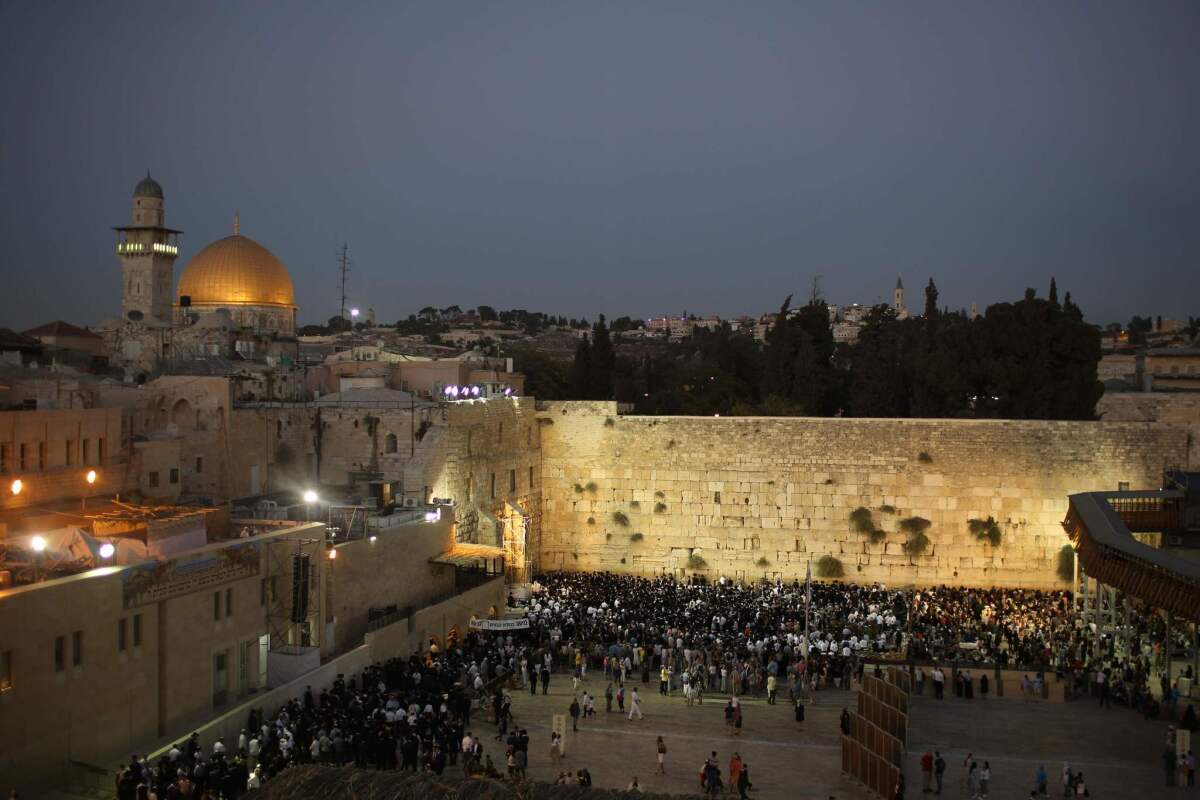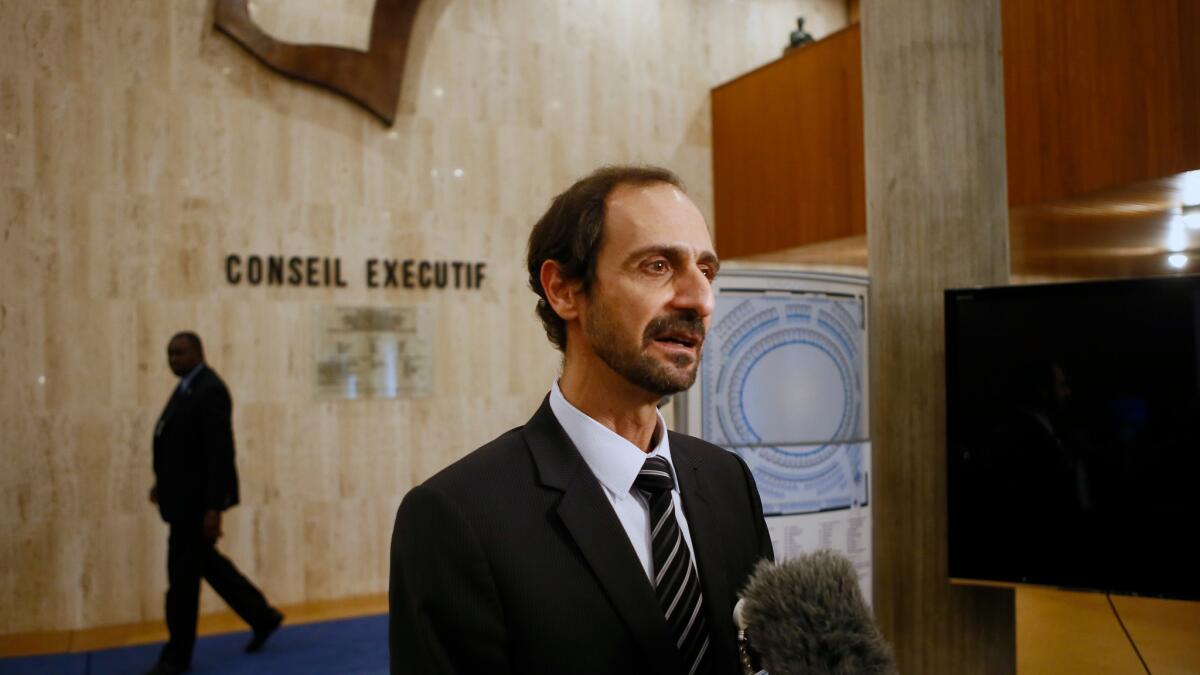Israel cries foul over UNESCO resolution on Jerusalem’s religious sites

- Share via
Reporting from Tel Aviv — The United Nations’ cultural agency on Tuesday endorsed a controversial resolution on Jerusalem that Israeli officials have assailed as omitting the historical link of the Jewish people to the city.
The declaration, ratified by the executive board of the United Nations’ Educational, Scientific and Cultural Organization, refers to the Old City’s contested holy esplanade by naming the Muslim holy sites while ignoring mention of the ancient Jewish temple that once stood there.
Though the UNESCO resolution does recognize Jerusalem’s Old City as important “to the three monotheistic religions,” it accuses Israel of pursuing aggressive and restrictive policies in the Old City toward the Al Aqsa mosque and the Noble Sanctuary, the golden domed holy site known as the Dome of the Rock. The Western Wall plaza, the site of the retaining wall of the temple, was mentioned but with quotation marks around the text.
Though the decision has little if any impact on Jerusalem, it has heated up rhetoric surrounding the city’s holy sites at a time when Israeli authorities are already on heightened alert for potential clashes during the Jewish pilgrimage holiday of Sukkot. Tension over the Al Aqsa mosque bubbled over during the previous two years into a daily wave of Palestinian attacks on Israeli targets.
Saying that Israel doesn’t have a connection to the Temple Mount ... is like saying that the Chinese don’t have a connection to the Great Wall of China.
— Israeli Prime Minister Benjamin Netanyahu
Yair Lapid, the leader of the opposition Yesh Atid party in the Israeli parliament, slammed the U.N. body for trying to “erase the Jewish identity of Jerusalem” and called the backers of the resolution “Israel haters.’’
When the cultural organization approved a draft resolution on Thursday by a 24-6 vote with 26 abstentions, it sparked annoyed responses from Israeli officials who cited the decision as evidence of an organizational bias against Israel.
“Saying that Israel doesn’t have a connection to the Temple Mount and the Western Wall is like saying that the Chinese don’t have a connection to the Great Wall of China,” Israeli Prime Minister Benjamin Netanyahu said Thursday. “Through this absurd decision, UNESCO has lost the little bit of legitimacy that it has.”
Jews revere the Temple Mount as the holiest site in their tradition; Muslims consider Al Aqsa the third holiest site in Islam.
In a statement, the Palestinian Foreign Ministry praised the resolution for criticizing Israel’s “illegal and colonial” actions in East Jerusalem, the area of Jerusalem annexed by Israel after the 1967 war and claimed by the Palestinians as the capital of their future state. The resolution was sponsored by a group of seven Arab states.

But top UNESCO officials were critical of the resolution. Michael Worbs, who chairs the executive board, said it lacked balance. On Friday, UNESCO Director General Irina Bokova of Bulgaria released a statement that said each religion “has a right to the explicit recognition of their history and relationship with the city. To deny, conceal, or erase any of the Jewish, Christian or Muslim traditions undermines the integrity of the site.”
Daniel Seidemann, an Israeli American lawyer and peace activist in Jerusalem, said that although the UNESCO resolution addresses genuine problems of Israel’s administration over Muslim holy sites in the old city, the wording is “inflammatory” and unproductive.
“The timing is unfortunate. This is one of the weeks that tension around the Temple Mount is highest,’’ he said. “This is about bashing Israel and not dealing with the genuine problems of Jerusalem.”
Mitnick is a special correspondent.
ALSO:
The Israeli-Palestinian reconciliation Shimon Peres envisioned is as elusive as ever
U.S. condemns Israel’s plan to create more housing in the West Bank
More to Read
Sign up for Essential California
The most important California stories and recommendations in your inbox every morning.
You may occasionally receive promotional content from the Los Angeles Times.










